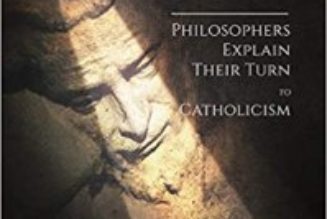
This expression of God’s law became so prominent in Jewish thinking that it is referred to as “the Law of Moses” (Josh. 8:31; Luke 2:22; 1 Cor. 9:9; etc.) or even simply as “the Law” (Matt. 22:36; Luke 5:17; Rom. 2:12; etc.). The latter term also came to be applied to the first five books of the Bible—the Torah or Pentateuch—which contain this law. It is thus spoken of as “the Law,” in contrast to “the prophets,” which are the other major part of the Old Testament (Matt. 5:17; Luke 16:16; Rom. 3:21; etc.).
Traditionally, Jewish theologians have divided the commandments of the law into two classes: those that require an action (“thou shalt”) and those that forbid an action (“thou shalt not”). However, Christian theologians have distinguished three types of commandments, based on the nature of what they require or forbid.
The first are moral commandments, which convey ethical principles (e.g., “Thou shalt not kill,” “Thou shalt not commit adultery”; Exod. 20:12-13). The second are ceremonial precepts that governed the ritual life of Israel (e.g., killing the Passover lamb or the distinction between clean and unclean foods; cf. Exod. 12; Lev. 11). The third type are often called the judicial or civil commands. These regulated the civil life of Israel. They include things like building codes (Deut. 22:8), penalties when one has committed theft (Lev. 6:5), and the establishment of safe zones where a person who has committed accidental homicide may flee (Num. 35:9-15).
Since the Law was given to the Jewish people, a key question for Christian theologians has been which of these commandments remain binding. One of the first controversies that faced the Church was whether Gentile converts to the Faith needed to be circumcised. The Church quickly determined that the answer was no (Acts 15; cf. Acts 10-11; Gal. 2). It was also established that Christians did not need to keep Jewish dietary laws or observe Jewish feast days (Col. 2:16; cf. Mark 7:19).
However, Jesus indicated that other commandments found in the Mosaic Law were binding, saying, “If you would enter life, keep the commandments,” and going on to explain, “You shall not kill, you shall not commit adultery, you shall not steal, you shall not bear false witness, honor your father and mother, and, you shall love your neighbor as yourself” (Matt. 19:17-19).
It thus appeared that certain commandments were binding on Christians, but others were not. Since the commandments that Jesus cited were moral in nature, whereas the ones Christians were not bound to observe were ceremonial, the solution adopted in Catholic circles was that it is God’s moral commandments that apply to all peoples.
Thus, Paul can speak of Gentiles who do not have the Law of Moses but who nevertheless “do by nature what the Law requires,” for “what the Law requires is written on their hearts” (Rom. 2:14-15). Since these moral commands are part of human nature, they constitute a “natural law” that all, including Christians, are bound to observe.
Christians are not bound to observe the ceremonial requirements of the Mosaic Law. These requirements pointed forward to the coming of Christ but have now been superseded (Col. 2:17). In their place, Christ has given us other ceremonies, such as baptism, which replaces circumcision and is thus “the circumcision of Christ” (Col. 2:11-12). Christians are thus bound not by the Law of Moses, but by “the law of Christ” (1 Cor. 9:21; Gal. 6:2).
At the time of the Reformation, some Protestants did not like the concept of natural law, which they thought violated the principle of sola scriptura by encouraging us to look to human nature to figure out moral questions. However, other Protestants retained natural-law reasoning.
All Protestants have held that Christians are bound to observe God’s moral commandments, and most have agreed that Christians are not bound to observe the ceremonial and civil precepts of the Mosaic Law. But not all agree.
For example, Seventh-Day Adventists have held that Christians are obliged to observe certain laws traditionally considered ceremonial, such as the requirement to keep the Jewish Sabbath (i.e., Saturday).
Similarly, some Reformed (Calvinist) Protestants have advocated a view known as Christian Reconstructionism or Theonomy, which holds that the civil law of modern societies should be informed by the civil commandments of the Mosaic Law. This includes the use of Mosaic penalties for various crimes, and some authors have advocated the use of the death penalty for adultery, homosexuality, blasphemy, witchcraft, and belonging to a false religion.
In addition, there have been many disputes in Protestant circles about whether particular practices are compatible with God’s law—including ones mentioned in the Bible (e.g., drinking alcohol, dancing, gambling, wearing makeup) and others not mentioned (e.g., smoking).
When two groups of Protestants have different views of how God’s law should be applied, the group seen as requiring too much of Christians is likely to be accused of legalism, whereas the group seen as requiring too little is likely to be accused of antinomianism (from Greek roots meaning “against the law”).
In addition, these terms are applied to those who are seen as requiring too much or too little for salvation. Thus, those who think repentance from sin or baptism are required may be accused of teaching “works salvation” and legalism by those who do not, and the latter will be accused of antinomianism by those who do.
This article is adapted from Jimmy Akin’s 20 Answers booklet “Faith and Works,” available at the Catholic Answers Shop.
Join Our Telegram Group : Salvation & Prosperity









